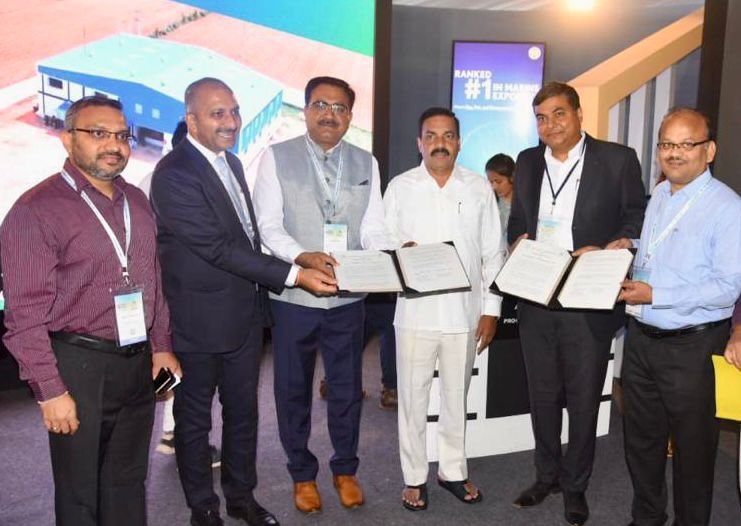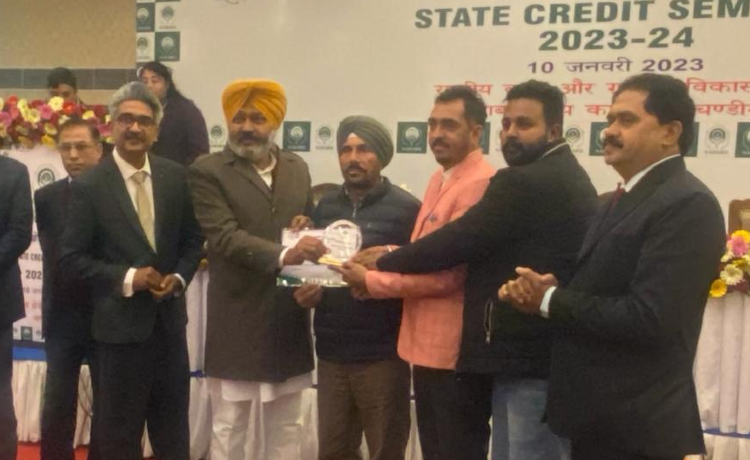GAVL inks MoU with AP govt to set up a manufacturing facility for Edible Oil Refinery
Under this MoU, GAVL’s Oil Palm business will be making an estimated investment of Rs 100 Crores to set up a manufacturing facility for Edible Oil Refinery & Solvent Extraction Plant.
Godrej Agrovet Limited. (GAVL), one of India’s largest diversified agribusiness companies, announced that it has signed a Memorandum of Understanding (MoU) with the State Government of Andhra Pradesh (AP) on the side lines of Andhra Pradesh Global Investors Summit (APGIS) 2023. As a part of MoU, GAVL’s Oil Palm business will be making an estimated investment of Rs 100 Crores to set up a manufacturing facility for Edible Oil Refinery & Solvent Extraction Plant.
GAVL is the largest oil palm processor in India and works directly with the farmers for the entire lifecycle of their crop. With company already having 45,000 h.a of oil palm plantation area in AP, the proposed new plant will have a projected refining capacity of 400 tonnes per day and will be set up in Seethanagaram, Eluru District in AP. This is GAVL’s first downstream project for value-added products in oil and fats.
Balram Singh Yadav, Managing Director, GAVL said, “The MoU is in line with Godrej Agrovet’s long-term strategy to be the catalyst in India’s oil mission through sustainable growth of oil palm production. This new investment is built up on the Rs 1000 Crores investment in the state by the Oil Palm, Aqua Feed and Dairy businesses.”
Present on the occasion of signing of MoU were Hon’ble Minister for Agriculture, Government of Andhra Pradesh, Kakani Goverdhan Reddy, Secretary – Food Processing, AP, Sri Chiranjiv Choudhary, I.F.S., Sri L. Sridhar Reddy – CEO, AP Food Processing Society, Sougata Niyogi, CEO – Oil Palm, GAVL and Rakesh Swami, Group President Corporate Affairs, Godrej Industries Ltd.
Commenting on signing off MoU, Sougata Niyogi, CEO – Oil Palm, GAVL said, “Having pioneered innovation in developing oil palm sector under irrigated conditions, the state of AP continues to lead country’s fresh fruit bunch volume and oil production. With bulk of GAVL’s oil palm plantation in the state, the facility near to our Crude Palm Oil Mills will help cater captive need originating from oil palm work in the southern states along with demand from other crude palm oil players in the region. This in sync with National Mission on Edible Oil – Oil Palm (NMEO-OP) will aid reduce nation’s dependence on imports.”
“AP has a unique geographic and climatic advantage which will propel businesses to partake in the growth story of the state. As a Group, we are keen to explore the business-friendly policies, emerging cities, and aspiring demographic dividend for the growth of our consumer products, real estate, and finance businesses. With impeccable support from the state government and our strong legacy of people and planet first business ethics, we are committed to expanding the business footprint in the state,” added Rakesh Swami, Group President Corporate Affairs, Godrej Industries Ltd.
Under this MoU, GAVL’s Oil Palm business














